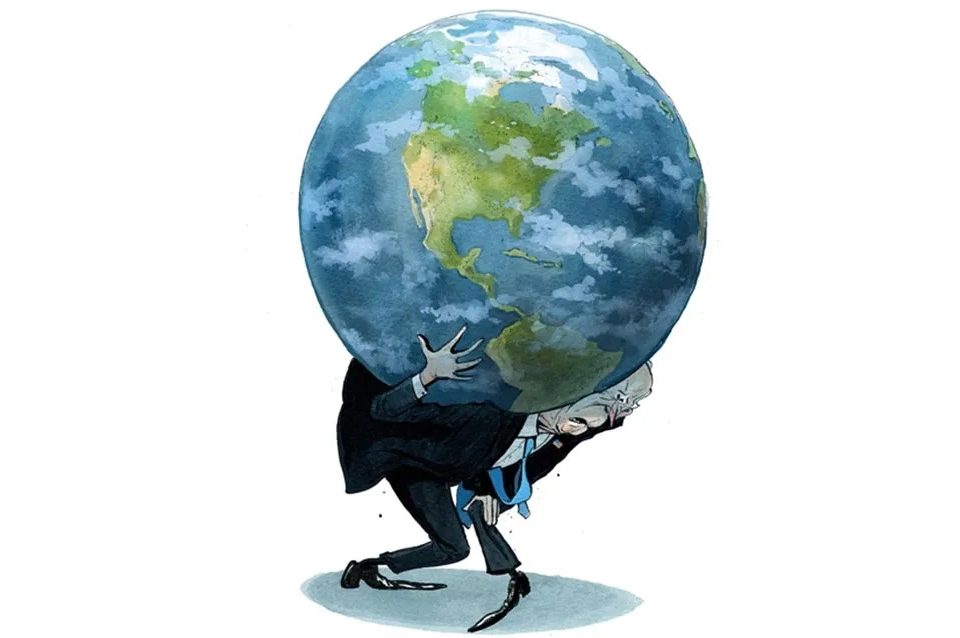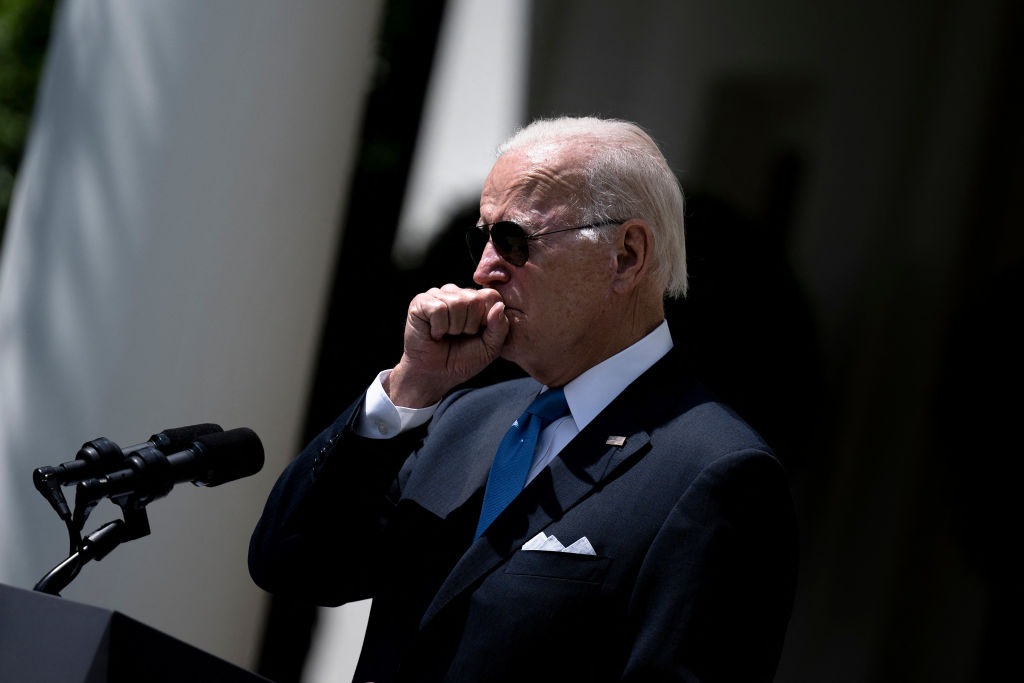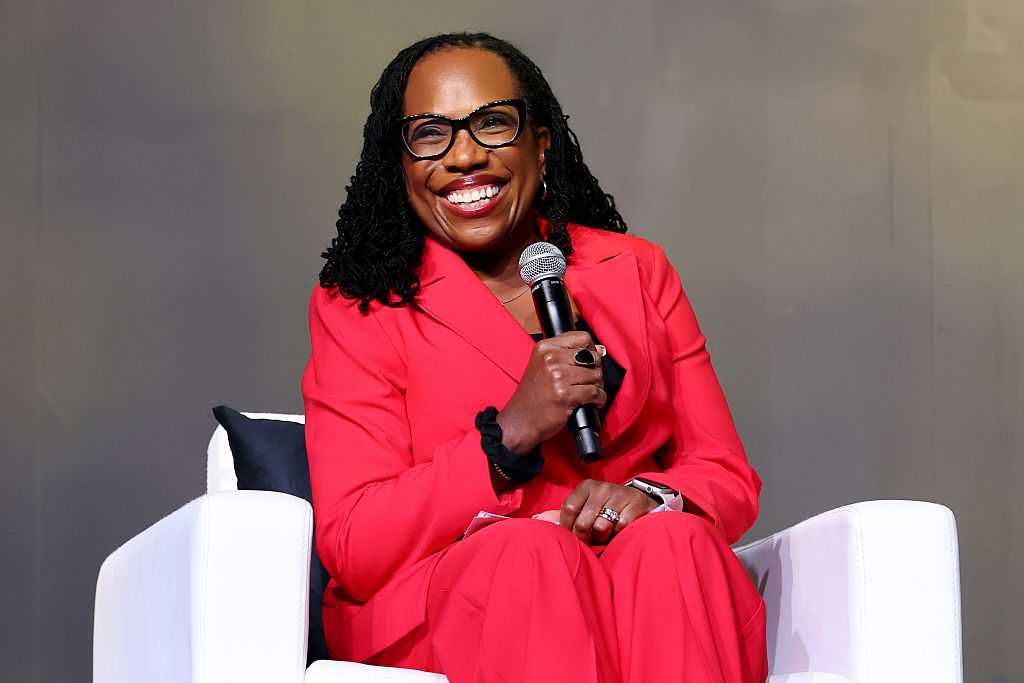The Democrats dare to hope that this week will be a study in contrasts. On their side stands President Joe Biden, the veteran statesman, using all his diplomatic experience to stop a third world war breaking out in the Middle East. On the other, in the dock in Manhattan, sits Donald Trump, facing thirty-four criminal counts in a case relating to porn stars, adultery and hush money.
As Biden urges Israel to “think carefully” as it considers how to respond to Iran’s attack last weekend, Trump is, as ever, ranting away about himself. This speaks to Biden’s 2024 re-election pitch: it’s democracy (him) versus chaos (you know who).
Trump can point to a string of successes that stemmed from his more assertive ‘madman’ approach
The problem is that the public does not appear to be swallowing the message. Whenever Trump’s “legal woes” make headlines, his popularity seems to go up. That’s because many voters find the Democratic penchant for attacking their political opponent through the justice system to be far more odious than anything Trump has or hasn’t done. And they find the presence of Biden in the White House to be anything but reassuring.
Most Americans do not like Trump. But poll after poll suggests that they regard the Biden administration as the bigger disaster.
On Saturday, three days before Trump’s Manhattan trial began, a New York Times-Siena survey showed that 42 percent of respondents “generally remember the years that Donald Trump was president” as “mostly good.” Just 25 percent said the same of Biden’s time in office.
Democratic politicians find it baffling that the common folk cannot see their obvious moral and professional superiority. On the economy, Biden keeps hailing the latest record job numbers as proof that “America’s economy is the strongest in the world.” Treasury Secretary Janet Yellen talks about the United States being the “key driver” of global growth. Yet still a significant majority of Americans appear to trust Trump more than Biden on the economy, even if the gap has narrowed in recent weeks.
The difficult truth for the Biden-Harris 2024 campaign is that most US citizens think that doddery Biden and his vice president Kamala Harris are simply not up to their jobs. A recent JL Partners poll found that only four in ten Americans are confident that eighty-one-year-old Biden can remember the names of his key staff.
Such doubts make voters even less likely to trust Biden on the issues they care about most. For instance, 20 percent of voters say that immigration is their number one concern, and 65 percent disapprove of the current administration’s handling of the border.
In a normal US election, voters might be less interested in foreign relations. This year, however, with war in Europe and the Middle East, “national security” is a growing source of anxiety. On this front, too, a majority of Americans appear to agree with former British prime ministers Boris Johnson and Liz Truss that the world was safer under Trump.
President Biden seems convinced — to the point of delusion — that international relations is his strong suit. His memoirs are stuffed with vainglorious anecdotes about him talking tough to Vladimir Putin in the 2000s and persuading Bill Clinton to bomb the Serbs in the 1990s. In recent weeks, he’s been busy reassuring nervous allies that he and Benjamin Netanyahu are due to “a come to Jesus moment.” But just 31 percent of Americans approve of Biden’s foreign-policy record, and only three in ten say they are confident that he is capable of fully digesting national security briefings.
Biden’s biggest decision abroad — the withdrawal of American forces from Afghanistan — turned into a major national humiliation. The Potemkin government that the US had spent trillions propping up in Kabul collapsed. Today, Afghanistan is run by the Taliban, under the patronage of Beijing and Moscow.
Teddy Roosevelt advised statesmen to “speak softly and carry a big stick.” The Biden administration seems to take the opposite approach. In June 2021, Biden warned of “consequences” that “would be devastating for Russia” if the opposition figure Alexei Navalny died in custody. In February this year, Navalny’s life ended in mysterious circumstances and not much happened, other than the White House announcing another round of sanctions. Rogue actors tend to feel emboldened when threats aren’t followed through on.
The US electorate is hardly crying out for America to be the world’s policeman. On the contrary, Trump appealed to many voters in 2016 precisely because he stood against the hawkishness of the George W. Bush era.
Having served as president, however, Trump is now able to point towards a string of foreign policy successes that stemmed from his more assertive “madman” approach. Russia did not start a war while he was in the White House, for instance. Trump also tore up Barack Obama’s nuclear deal with Iran and brokered the Abraham Accords between Israel and its Gulf neighbors — a series of agreements that helped further isolate Tehran and which the Biden administration considers the best hope for peace in the Middle East.
Under the less assertive Biden, Washington’s words often seem peculiarly disconnected from its actions. In recent weeks, the president has expressed grave concerns about Israel’s “over the top” bombardment of Gaza, even as he waves through massive military aid packages to help Israel complete the destruction.
Last week, Biden, who prides himself on his empathy, had a one-word message for an Iranian regime that was preparing its revenge attack on Israel: “Don’t.” Then, last weekend Iran did, and by Sunday Biden had switched to urging Israel to “show restraint.” He urged Netanyahu to “take the win,” since Iran’s missiles were almost all shot down. By Monday, however, the Israeli war cabinet had promised to launch retaliatory “action co-ordinated with the United States” and Biden’s wise-man routine appeared to be causing yet more of a muddle.
Trump, by contrast, says bluntly that Israel is “losing the PR war” and needs to “get it over with.” He prefers to grandstand about his epic legal battle against the “deep state.” Which leaves Americans wondering: who is the real chaos candidate?
This article was originally published in The Spectator’s UK magazine. Subscribe to the World edition here.


























Leave a Reply